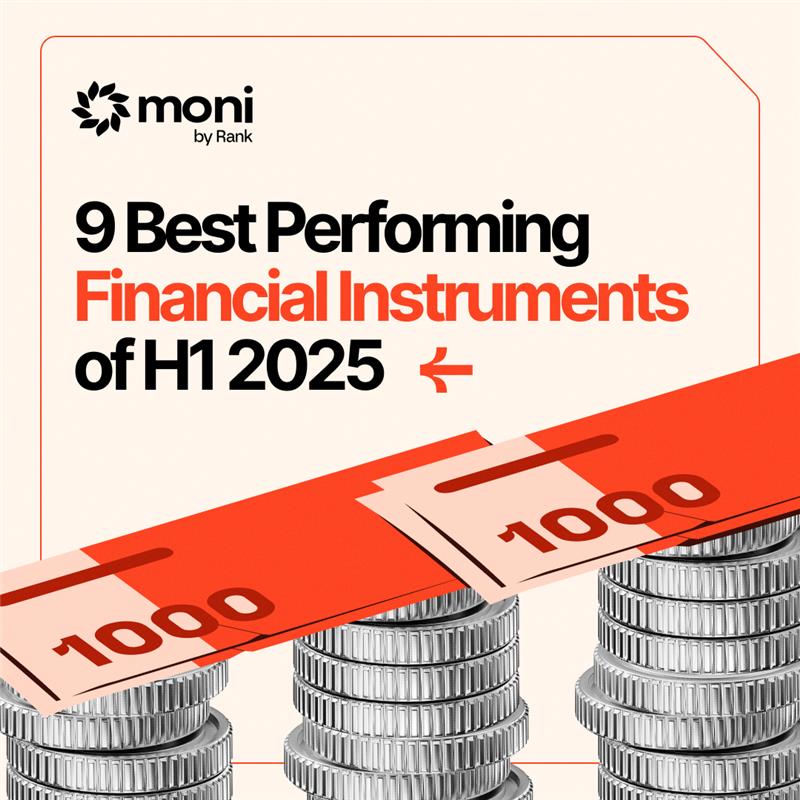Do you have bad spending habits?
- You’re frequently out of cash by the end of the month and can’t really remember where all of the money went.
- You’re earning enough but can’t seem to build savings or invest in long-term goals.
- You constantly feel like your money disappears almost as quickly as it comes in.
If you nodded yes to any of the above, chances are some bad spending habits are lurking in there somewhere and holding you back from becoming a millionaire.
Like brushing your teeth or exercising regularly, the first step to building great financial habits is to break out of bad ones. In this article, we’ll explore seven bad spending habits that could be the reason you’re living from paycheck to paycheck — and, more importantly, how to break them.
But first…
What kind of spender are you?
Emotional shopper: you get a kick out of the excitement of buying new stuff
Discount hunter: you make purchases simply because items are discounted, even if you don’t truly need them.
Convenience shopper: you get drawn to ads and websites that make it easy to buy with just a few clicks.
Impulse shopper: you tend to buy things on a whim, without considering how it affects your budget.
Again, if any of the above sounds like you (or maybe you shop for other reasons), there’s good news — you can break your bad spending habits and build better ones. Keep reading to find out how!
7 Bad spending habits and how to break them
- Overspending on Nonessentials
It’s easy to overspend and lose track of where your money is going when you don’t have a clear understanding of what you absolutely need to spend your money on i.e your essentials. Nonessential expenses add up quickly and quietly drain your funds. Without a plan, even a small splurge here and there can derail your financial goals.
Solution
To avoid overspending, it’s important to create a budget and stick to it. One effective budgeting method is the 50–30–20 rule. This technique divides your income into three categories:
50% for essentials (rent, groceries, bills)
30% for nonessentials (dining out, entertainment, shopping)
20% for savings and debt repayment
By following this structure, you can ensure that you’re spending money on your needs and wants while also prioritizing your savings.
2. Spending First, Saving Later
One of the most common financial mistakes people make is waiting to save until after they’ve spent their paycheck. Unfortunately, this habit leads to inconsistent savings and can leave you unprepared for future expenses or emergencies. If you only save what’s left over after spending, you’re not setting yourself up for financial stability or long-term wealth.
Solution
Flip the script by automating your savings. Set up automatic transfers to a savings account as soon as your paycheck hits your bank. This way, you’re paying yourself first before allocating funds to expenses. Have a clear savings goal in mind, whether it’s an emergency fund, a vacation, or long-term investments, and track your progress regularly. To make room for these savings, find creative ways to cut down on unnecessary expenses, such as eating out less or canceling unused subscriptions.
Protip: Set up a savings account with Moni. Moni makes saving effortless with its automated savings feature. As soon as your paycheck hits your account, instantly transfer a set amount into your savings account, helping you stay on top of your financial goals. Get started with Moni here.
3. Impulsive Spending
Impulse purchases are one of the fastest ways to sabotage your financial goals. We’ve all been there — you walk into a store for one item and walk out with a shopping cart full of things you never intended to buy. Impulsive spending is often driven by emotions, and while it may feel good in the moment, it can wreak havoc on your wallet.
Solution
Again, budgeting is key. By drawing up a budget and committing to it, you can curb your desire for impulse purchases. The 50–30–20 rule we mentioned earlier can help you stick to a plan. Another tip is to wait 48–72 hours before making any nonessential purchase. Giving yourself time to think can help you decide whether the item is really worth it.
Read: Easy ways to track your Monthly Expenses
4. Over-reliance on Cash Advances
Cash advances can seem like a quick fix when you’re short on funds, but they often come with interest rates that can trap you in a cycle of debt. Whether it’s payday loans, overdraft protection, or buy now, pay later (BNPL) services, relying too much on cash advances ultimately keeps you further away from your financial goals.
Solution
The first step in breaking this habit is to stick to a budget and manage your spending more effectively. Start by redefining what constitutes an “emergency.” Too often, people justify cash advances for non-urgent purchases. Instead, focus on building an emergency fund to cover unexpected expenses. In the meantime, mentally tell yourself that cash advances don’t exist. If you don’t treat them as an option, you’ll be less likely to rely on them.
5. Spending for Social Status
Spending money to keep up appearances is another bad habit that can severely limit your financial growth. It could be buying luxury goods, dining at trendy restaurants, or purchasing the latest tech gadgets, all to maintain. a social status that can lead you to live beyond your means.
Solution
It’s important to say no to peer pressure and avoid getting caught up in the desire to fit in. Ask yourself if the status symbol is truly worth the financial burden. Remember, real wealth isn’t about appearances; it’s about financial security. Focus on your long-term goals and remind yourself that temporary sacrifices can lead to greater success down the road.
6. Excessive Retail Therapy or Mindless Shopping
Using shopping as a way to cope with stress or boredom is a common but harmful habit. While it might bring temporary satisfaction, it often leads to feelings of regret and financial strain. This kind of mindless shopping can sneak up on you, particularly when you’re unaware of how often you’re doing it.
Solution
Try mindful shopping. Before making a purchase, ask yourself whether it’s something you truly need or if you’re buying it to fill an emotional void. Find healthier ways to relieve stress, like exercising, reading, or spending time with loved ones. Additionally, set limits for yourself before heading to the store or browsing online — and stick to them.
Read: 15 Easy and Creative ways to save money
7. Living Without Financial Goals
Perhaps the biggest financial mistake is living without clear goals. If you’re spending without a plan for your money, it’s impossible to build wealth. You might find yourself spending mindlessly on things that don’t contribute to your future, rather than investing in what matters most.
Solution
Set specific financial goals and create a roadmap to achieve them. Whether your goal is to buy a house, start a business, or retire early, having a clear objective will help you make better financial decisions. Break these goals into smaller, manageable steps and track your progress. Knowing what you’re working toward can help curb unnecessary spending and keep you focused on the bigger picture.
When in doubt about a purchase, remember that it is always better to save than spend frivolously. Take control of your spending, set clear financial goals and stick to a budget — your future millionaire self will thank you!





